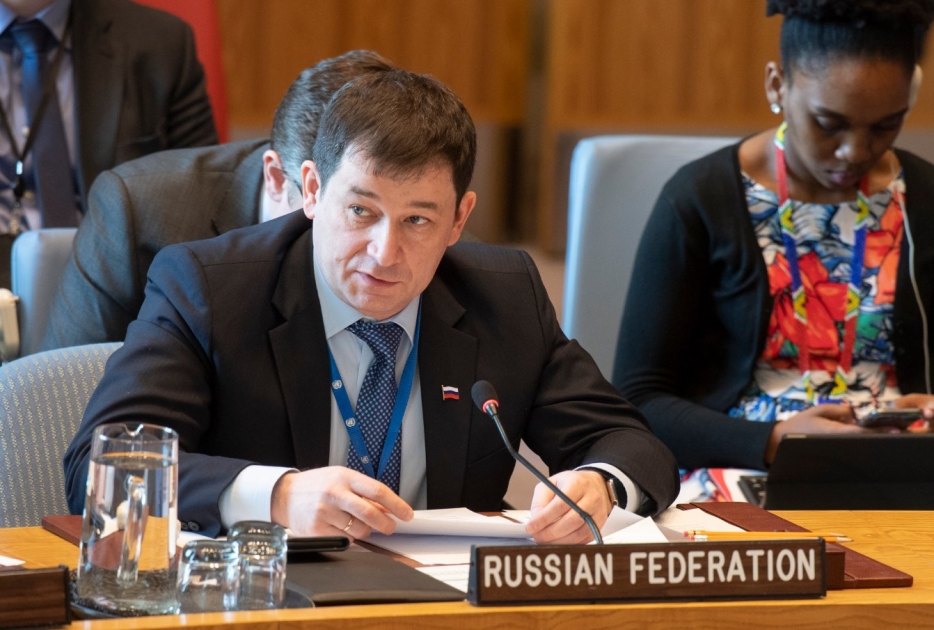Statement by First Deputy Permanent Representative Dmitry Polyanskiy at the UN Security Council Meeting on Haiti
Mr. President,
At your proposal we let all the greetings and diplomatic formulae be engulfed in the sand of the Thuringian hourglass and get straight to the point.
The situation in Haiti causes mixed feelings. For one thing, reports on Haiti become increasingly optimistic in terms of restoring the country’s national ownership. There is a very illustrative assessment made by Secretary-General: he indicated that by October the Haiti National Police would be able to autonomously ensure protection and security for the country.
For another, now that Haitians commence to feel national responsibility for their country, social activities and civil action are on the rise. This brings about challenges that are characteristic of a mature State.
It is with concern that we are watching a new cycle of tension in social and political life of the country. In the course of the recent months, there was undulating civil unrest in Haiti – outbursts in October and November of the previous year by February emerged into mass protests to surge the country and take dozens of lives.
We take notice of the attempts of the country’s leadership to normalize the situation. Nevertheless, we have to state that resignation of the government headed by the Prime Minister failed to prevent the opposition from calling to begin nationwide protests.
There is no doubt that the rights to peaceful assembly and freedom of expression are inalienable, however they should be guaranteed only given strict compliance with national legislation.
Such contradictions between government and society are nothing new. They happen in other points of the Western hemisphere and elsewhere in the world. We relentlessly repeat that the only way to solve such internal disputes is an inclusive national dialogue. Only dialogue can produce a sustainable and viable solution regardless what State is in question.
We have always said that attempts to violently oppose legal authorities are very dangerous, because they neither add to consolidation of society nor meet requirements to support progressive development of States. Therefore we, just like Secretary-General, hope that Haitians will manage to overcome their discords through a constructive national dialogue –to the greatest extent inclusive and by all means peaceful. It is crucial, particularly in light of the pending elections in Haiti.
We also believe that at such uneasy time for Haiti the global community should not remain indifferent and should help the government and people of Haiti to implement their national ownership on post-conflict peacebuilding. There is much work ahead for the UN officials whose task is to provide maximum possible assistance to the Haiti government.
The question is how to make this global assistance as efficient as possible. We have been long saying that the situation in Haiti does not pose a threat to international peace and security. That means there is no longer need to apply Chapter VII of the UN Charter to this country. That is why a year ago we abstained from vote on resolution 2410, in which the US delegation insistently proposed to extend the effect of Chapter VII even to the mission mandate on assistance in observing the situation with human rights in the country. Our position on this remains unchanged.
In conclusion, Mr. President, let me assure you that Russia supports Port-au-Prince, and does its best in order to help the Security Council achieve real normalization in Haiti, strengthen sovereignty and self-sufficiency of this State.
Thank you.
